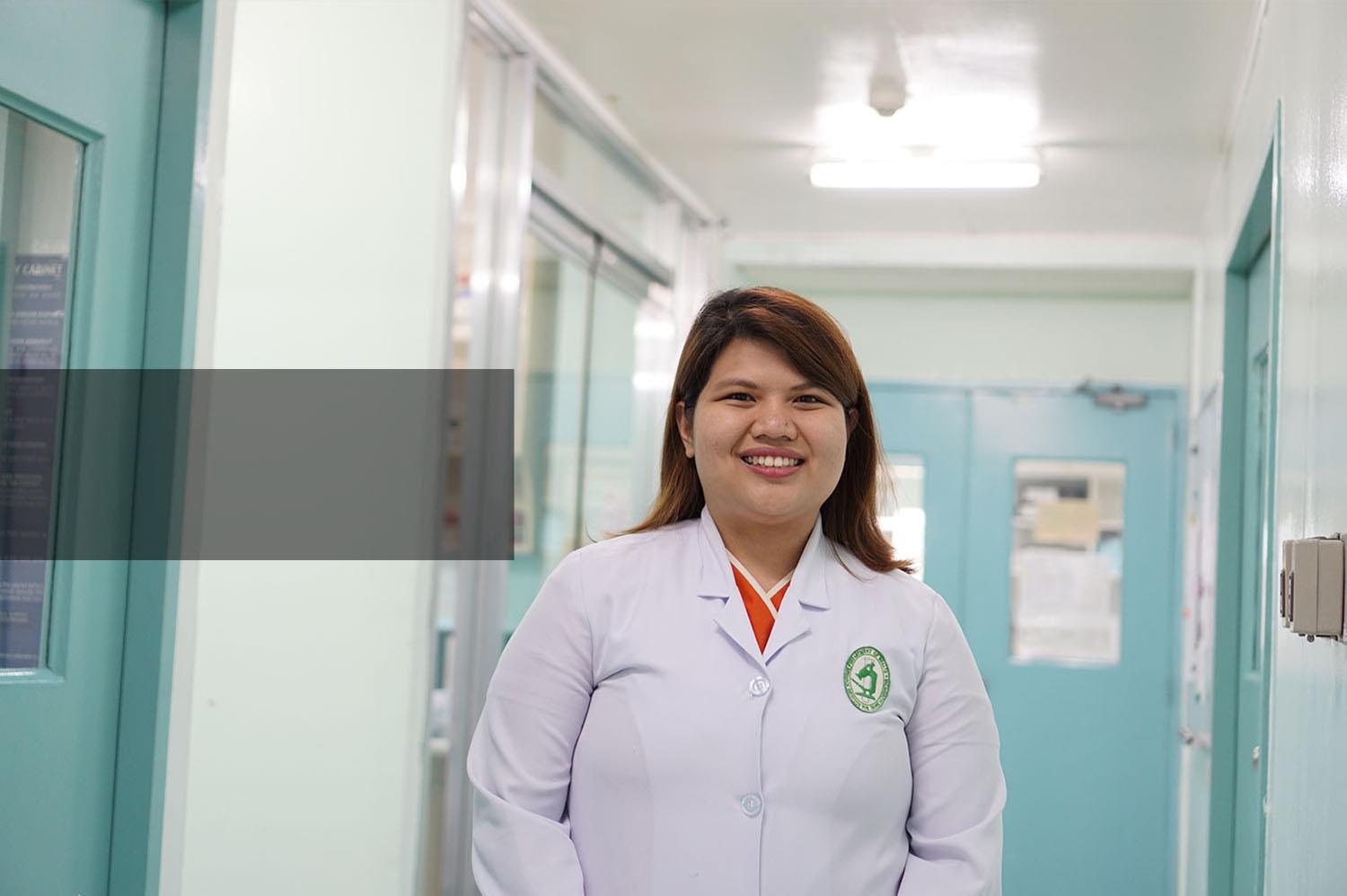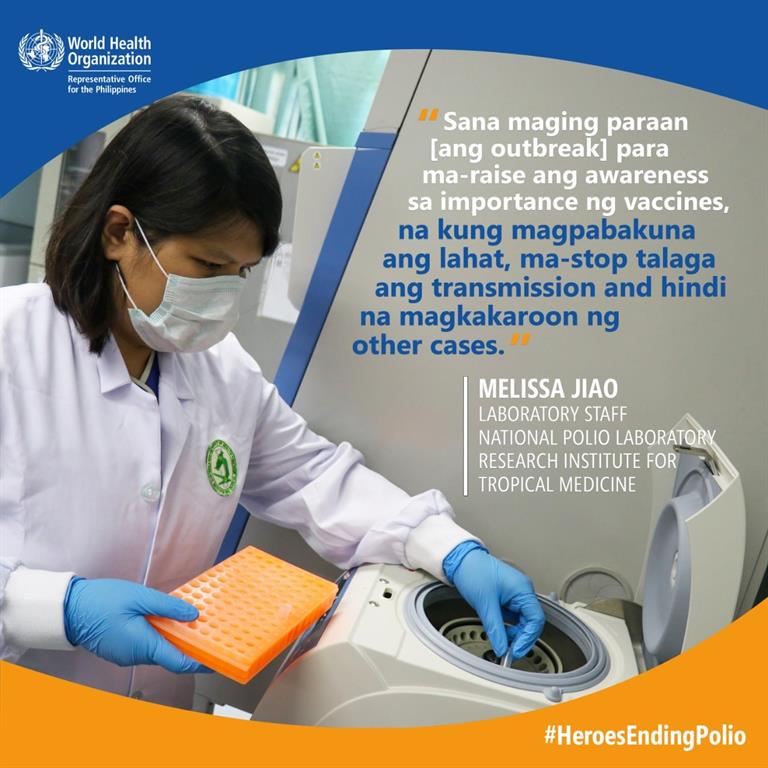Laboratory workers play a crucial role in the ongoing polio outbreak as they support the testing and confirmation of samples. Mel shared her experience when she, along with the rest of the National Polio Laboratory at the Research Institute for Tropical Medicine tested the first polio case in the Philippines after 19 years.
“We were worried because we saw that the result was really positive. We were also quite sad because we have had so many efforts for eradication, that we haven’t had polio for a long time. When the first case tested positive, I felt sad because I knew it was polio which caused the child’s paralysis, and the paralysis is permanent and for life.
Now, we are testing an increasing number of samples - around thrice the number we used to test. Working overtime is already normal for us. We understand the impact of our work and we are excited about doing our best every time. The earlier we detect a virus from a case or a location means that the response can also happen earlier. With an earlier response, we can prevent the further spread of polio.
I hope that this outbreak will be a way to raise awareness on the importance of vaccines - that when all are vaccinated, we can stop the transmission [of polioviruses] and we prevent further cases.
I hope that communities will help our health workers in the vaccination response. The DOH does this for them so that the disease will not spread in their area.”


